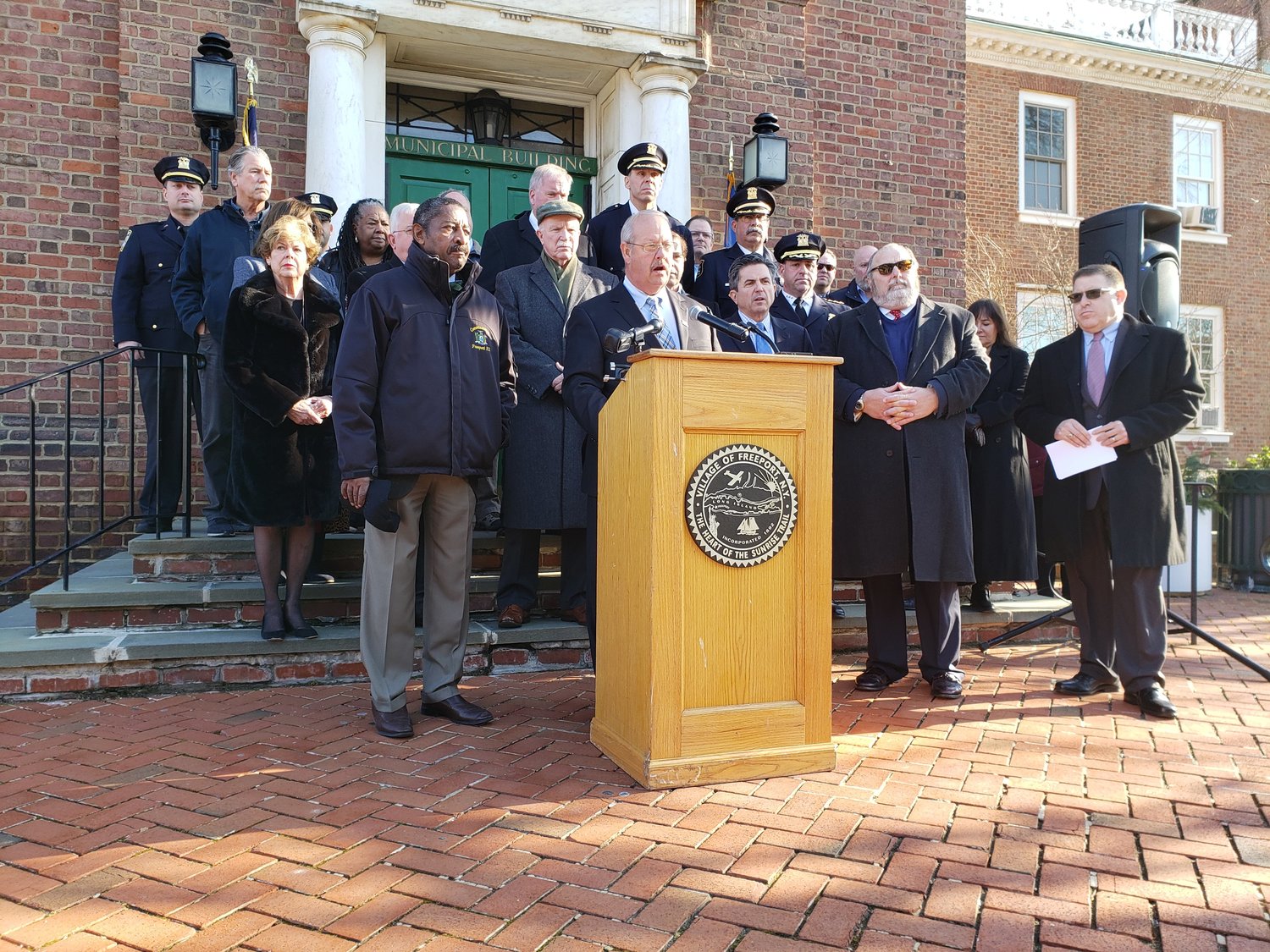Mayor decries criminal discovery law
Kennedy says village will have to raise taxes next year because of it
Because of a new state criminal discovery law, the Village of Freeport will have to exceed the state’s 2 percent tax levy cap in 2020-21 and increase village taxes by 5.23 percent, which will amount to $187 a year, or $15.58 per month, according to tentative village budget documents.
The tax increase is the first in six years. “It would have been seven years with no tax increases” if not for the new law, Mayor Robert Kennedy said.
Kennedy, who is president of the New York Conference of Mayors, decried the potential fiscal impact that the law may have on villages at a protest at Freeport Village Hall on Wednesday. Joining him were court personnel, elected village officials from Long Island and upstate, and members of the Floral Park, Long Beach, Lynbrook, Malverne and Northport police departments.
“We’re here to express the opposition and dissatisfaction [with] the criminal reform legislation taking effect Jan. 1, 2020,” Kennedy said. “This unfunded mandate created by Albany will create a hole in all of the villages’ budgets that have [to adopt] a budget by March 1.”
Freeport, according to Kennedy, will also have to deal with an $800,000 hole in its 2019-20 budget to cover criminal discovery expenses incurred between January and March 1, when Freeport’s 2020-21 budget will take effect. To fill that hole, it will have to dip into its reserve fund, the mayor said.
Village reserves, Kennedy explained, are used in emergencies, such as Hurricane Sandy. By tapping into reserve funds, which now stand at about $23 million, the village could loose its recent Moody’s Investors Service Aa3 credit rating, according to the mayor. According to Moody’s, the village has been able to increase its reserve funds by 361 percent since 2013.
At the same time the new law will increase Freeport’s budget, it will also add to the Police Department’s workload. The department will have to provide video packages, phone records, notes and other evidence in more than a thousand cases, up from 50 a year. That figure does not include the Village Court discovery workload, which is expected to increase from 25 to 5,000 cases per year, the mayor said.
“This was something that was not thought out,” Village Attorney Howard Colton said. The New York State Legislature “didn’t look at this. They were addressing different concerns in different areas, but they did not look at what would happen to the villages. We are not the only village that will have to pierce the tax cap.”
Freeport, Colton said, will have to hire an additional prosecutor, judge and worker to process discovery requests.
“The failure to review financial logistical burdens to the villages, prior to the enactment of his legislation, will result in a potential train wreck in January,” Kennedy said.
NYCOM Executive Director Peter Baynes said that property taxpayers would pay the price.






